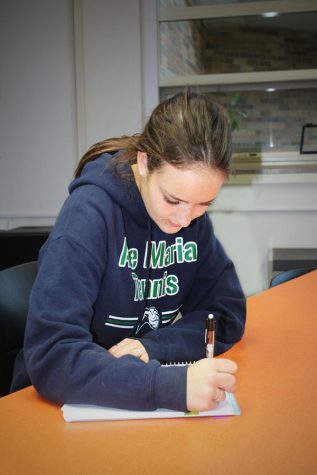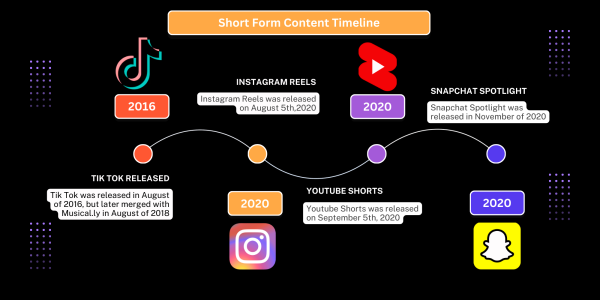Studying Made Simple
It’s the night before a big test. You’re stressing out over studying, wondering if your grade is even worth it. You run your fingers through your hair, taking three big, deep breaths. Effective study habits can be hard to find, but practicing them can help you feel more safe and secure heading into an exam.
Finding the best studying environment
Many people tend to choose distracting places to study. They might go to their kitchen table or their TV room couch or, even worse, their bed. Studying somewhere that one usually eats, sleeps or watches TV in is not ideal. Brian Robben, author of “How to College,” stated that, when studying in your bed, “you’ve trained your body to associate your bed as a place to study or get homework done, [so] once you lay in bed to call it a night, your mind will continue to think.”
Mrs. Jennifer Kahn, an environmental science and chemistry teacher, stated that “as a science teacher, [I have] to go with what the science says, and the science says that your brain is not great at multitasking.” Furthermore, she mentioned that having other noise around you while studying is distracting, and even harms the studying process. Somewhere quiet to study is most ideal.
Bruce Senter, a senior, said he will “book the [innovation] rooms for clubs and spend not only the club time, but some time after that just working and doing my homework because [he likes] the whiteboards.”
Senter is a “visual learner,” so working with the whiteboards really helps him. However, when the innovation rooms are unavailable and Senter is stuck at school, he “sometimes [goes] to the chairs outside the A-F LST.”

Jennifer Kahn, an environmental science and chemistry teacher, agrees that studying in a quiet place with no distractions is most beneficial for studying.
Finding the perfect study habits and staying motivated
It’s just as important to know how to study as it is to know where. Melanie Faber, a junior, said that her “number one study tip is to study out loud and repetitively.” A science website, Brainscape, explained what Art Markman, a cognitive scientist at the University of Texas, mentions in his psychology blog. It states that “while there are memory pathways of visually seeing the words and also the auditory pathways of hearing the words, there is also a memory link to the actual production of the word.” So, speaking the words while reading makes more connections in the brain, making it easier to remember what you have studied.
It’s not always easy to find the best study habits to fit someone’s personal needs. Senter noted that “it’s all based on what you can do. It’s physiological really; it’s whether you can find that drive, and if you could find the passion in that class to get the work done.”
However, motivation is critical to focused, effective studying. Faber has a few tips on how to stay focused, like “[setting] an end time for my studying, which motivates me to work hard in the time I give myself. Other times, I will section off my studying with breaks in between. And for the late nights when it’s hard to study because all I want to do is sleep, I’ll eat or drink something sugary to keep myself going.”

Students utilize the new innovation centers at LHS, located in rooms 149 and 150, to study effectively with unique furniture and whiteboards.
In the end, everyone is different when it comes to the best and most productive ways to study. What students need to do is understand what works for others, try out different methods, and then find exactly what works best for them. When students study correctly, they learn much more efficiently.






